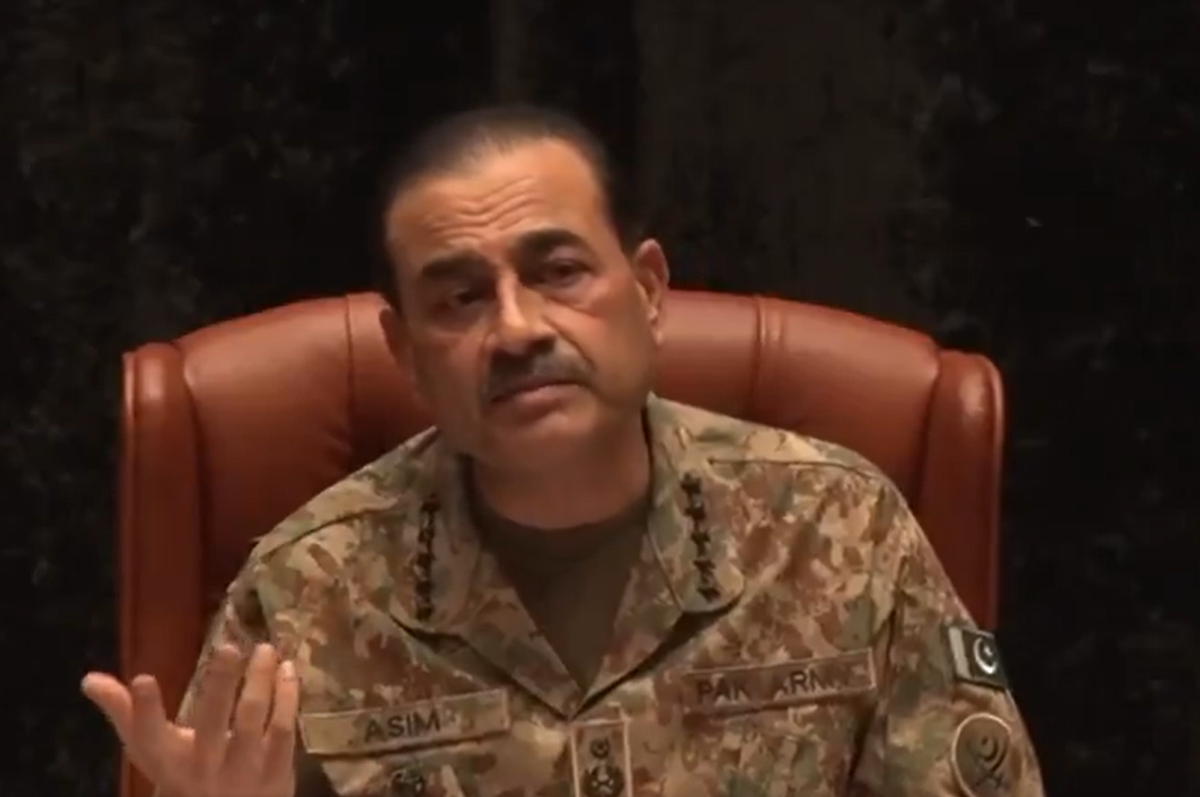Pakistan urges Kabul to deny space to 'Indian-backed terror groups' on its soil
Pakistan army chief calls India region’s 'biggest state sponsor of terrorism', blaming its internal policies for fueling extremism

Aamir Abbasi
Editor, Islamabad
Aamir; a journalist with 15 years of experience, working in Newspaper, TV and Digital Media. Worked in Field, covered Big Legal Constitutional and Political Events in Pakistan since 2009 with Pakistan’s Top Media Organizations. Graduate of Quaid I Azam University Islamabad.

Pakistan Army Chief Field Marshal Asim Munir addresses officers in Islamabad.
Screengrab
Pakistan Army Chief Field Marshal Syed Asim Munir has said Islamabad seeks peaceful and cooperative relations with Afghanistan, but warned Kabul against allowing Indian-backed terrorist proxies to operate from its soil.
“We ask only one thing: do not give space to India’s terrorist proxies -- Fitna al-Hind and Fitna al-Khawarij,” Field Marshal Munir said while addressing officers of the 52nd Common Training Program in Islamabad.
The army chief’s remarks come amid growing concerns in Islamabad over cross-border threats and regional instability. He said that while Afghanistan remains a “brotherly, neighboring Islamic country,” it must act responsibly to curb the influence of hostile forces operating under the guise of militancy.
Field Marshal Munir also accused India of being the region’s “biggest state sponsor of terrorism,” and claimed that the roots of terrorism within India stem from its own internal dynamics.
“Terrorism is India’s internal issue -- a result of its discriminatory and oppressive treatment of minorities, especially Muslims,” he said.
In a broader regional context, the army chief reaffirmed Pakistan’s refusal to accept Indian dominance, saying the country has consistently stood its ground. “As a nation, we have never bowed before India and we never will,” he declared.
He went on to describe how Pakistan responded effectively to Indian aggression during what he termed the “battle for truth,” spanning from the Line of Control in Kashmir to the country’s coastal areas. “God helped us in the battle because our cause was just,” he said, praising the synergy between Pakistan’s institutions during the conflict.
Field Marshal Munir also emphasized the Pakistan Armed Forces' state of readiness in adapting to modern warfare. “Our military remains fully prepared to meet the demands of contemporary battlefields,” he asserted.
Shifting focus to domestic governance, he said Pakistan’s civil bureaucracy forms the backbone of coordination between state organs and urged officers to shoulder this responsibility with integrity. “You must not allow weaknesses or negative forces to overpower the system,” he said.
He encouraged the young officers to embrace their national identity above all else, rise above regional and ethnic divisions, and cultivate courage, competence, and — above all — character. “If you have to choose among these, always prioritize character,” he advised.
The army chief called on future leaders to remain rooted in history. “Nations that forget their past also forfeit their future,” he said. “Know Pakistan’s story, and pass it on to the generations that follow. Love and loyalty to the nation are non-negotiable values.”










Comments
See what people are discussing